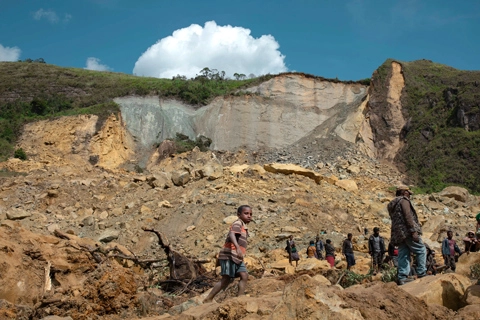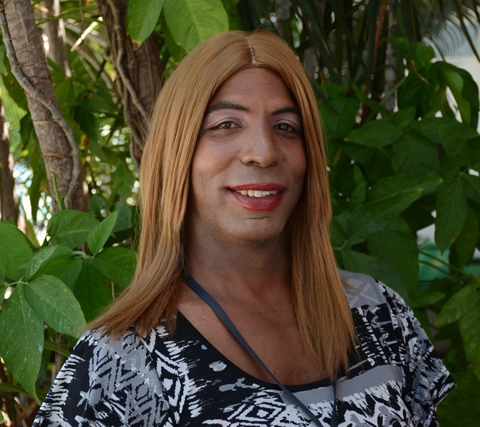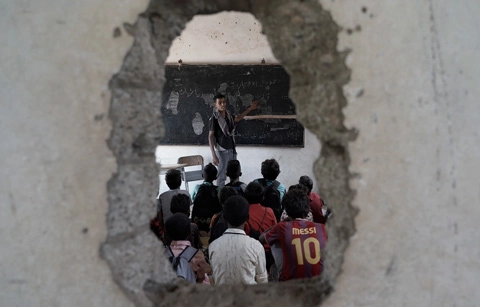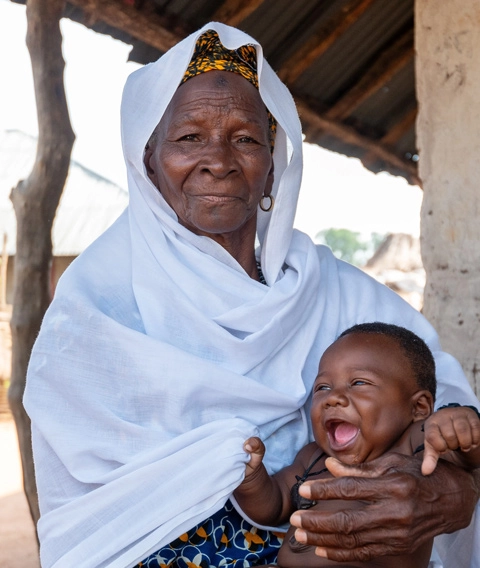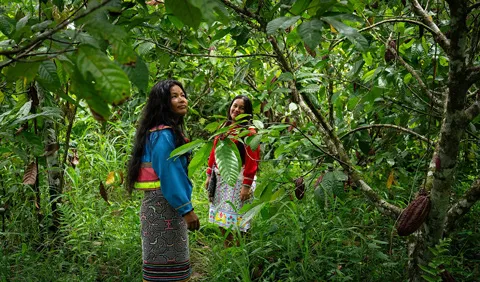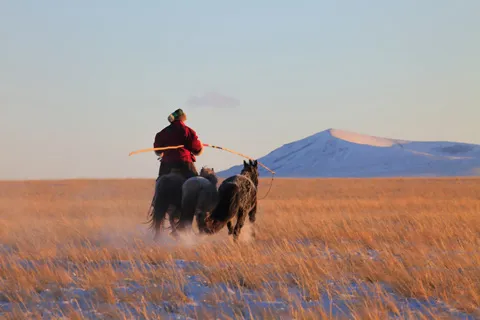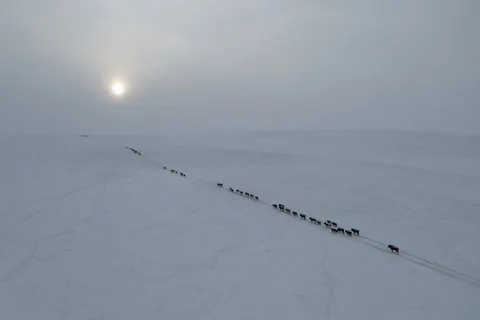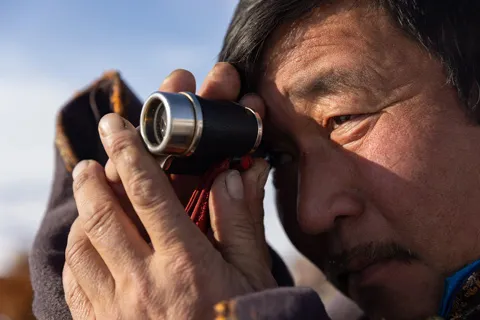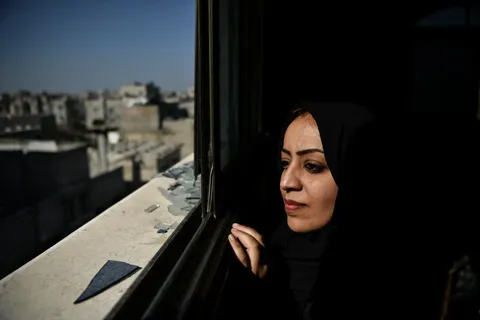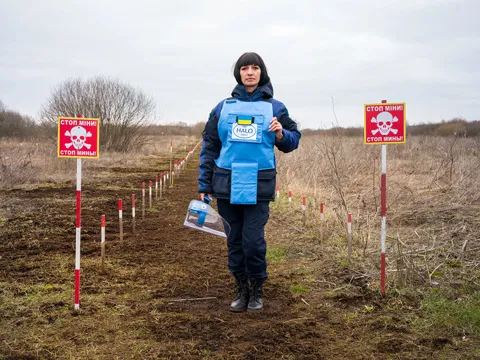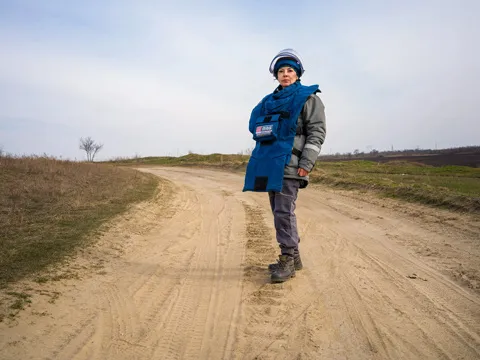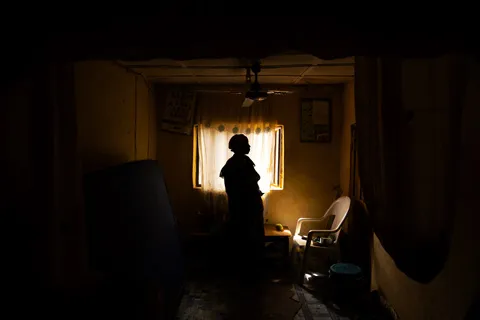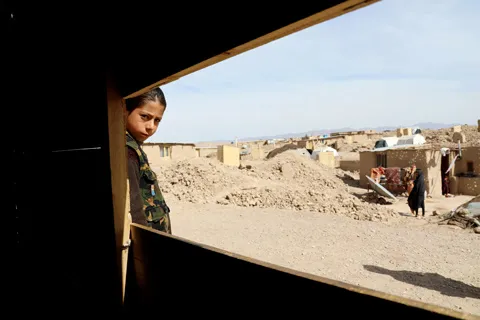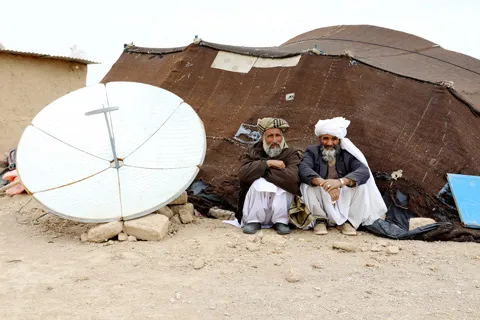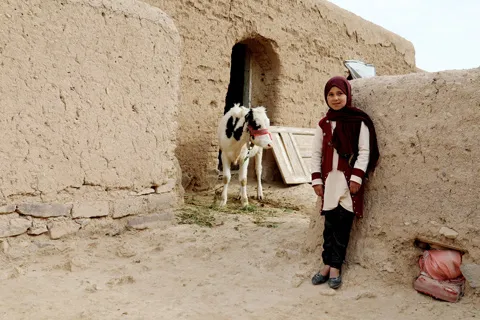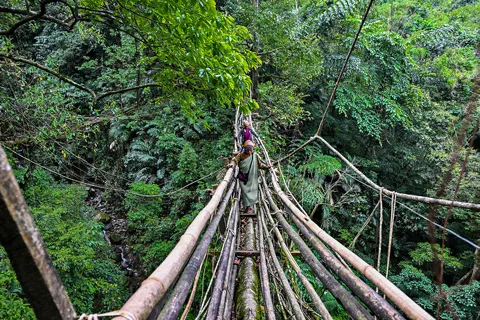2024 in pictures
Reducing poverty and inequality. Promoting human rights and governance. Building resilience to disaster and crisis. UNDP works to improve lives in more than 170 countries and territories.
Here are some of the highlights of our work from the past year, in photos.
A devastating landslide struck the remote village of Yambali in Papua New Guinea’s Enga Province in May. It buried entire communities under massive boulders and mud. Residents responded with determination and solidarity.
The Papua New Guinea Highlands are increasingly susceptible to extreme weather. Those who are already grappling with poverty, conflict and fragile governance find themselves ever more at risk.
UNDP’s rebuilding support goes beyond physical infrastructure, focusing on community resilience, psychological recovery and strengthening local governance.
UNDP Papua New Guinea
Juho Valta
Cuba is breaking down the barriers to LGBTIQ+ inclusion and is committed to guaranteeing all peoples’ right to live free from violence, persecution and harassment.
As part of its national response to HIV, organizations such as Transcuba also foster social integration for LGBTIQ+ people, like Lili Álvarez. “As a woman, I feel empowered now.” All the same, she says that her life hasn’t been easy. She has had to deal with stigma and discrimination because she now identifies as a woman.
UNDP Yemen
Despite years of war and uncertainty, Yemenis never stop striving to create a better society, including an education system that functions effectively at all levels.
After more than a decade of conflict, displaced children and young people remain among the most vulnerable, including disruptions in their education. Around 1.3 million endure overcrowded classrooms and overburdened teachers. Yet still, children are in school, even if they have to sit on the floor.
Gabu region has the highest rates of malaria in Guinea Bissau.
Recent studies have shown that Seasonal Malaria Chemoprevention (SMC) can reduce malaria rates by up to 75 percent in children.
Little Seco, pictured in her grandmother N’beta’s arms, is one of the 250,000 children under 10 that benefitted from the 2024 SMC campaign undertaken in the four most at-risk regions.
Indigenous women like Nilda Vázquez are leading the restoration of the Peruvian Amazon rainforest.
“There used to be many more species,” she says.
Nilda began her work reviving ancestral knowledge in 2021. Today, the area she manages has become a habitat for various forest species, serving as an example for her community in addressing deforestation. She is joined in her conservation work by Mercedes Honorio.
“We are working women; we don’t stand still. We make every effort to move this forward.”
UNDP Peru
Nuria Ángeles Tapia
Mongolians lost more than 13 percent of their livestock during the last severe winter, known as the dzud.
Agricultural expansion, mining, infrastructure development and climate change are also pushing Mongolia’s biodiversity to the brink. For rural communities, protecting biodiversity is not just about conserving wildlife—it’s about securing their own future.
“When we lose species, we lose more than wildlife—we lose the foundation for life in countless communities. Our work in Mongolia is about promoting a way of living that is in harmony with the nature, ensuring that people and wildlife can thrive side by side,” says Matilda Dimovska, Resident Representative for UNDP Mongolia.
UNDP Mongolia
After years of working in the UK, Mihai and Doina Pantaz decided to return home and invest in beekeeping. Doina inherited her love of bees from her father and, with his help, managed to turn her passion into a thriving business.
Three years ago, the family lost nearly all their bees due to bad weather. With support from Sweden and UNDP they started over, with renewed inspiration.
"The training and workshops we attended helped us organize our economic activity differently and adapt all processes to be as environmentally friendly and economically efficient as possible," says Doina.
Alaa Abu Mudallah, a Palestinian entrepreneur from Gaza, lost her training centre 'Khotwa' during the war. It was an initiative she had started to address one of the most pressing sources of hardship for Gaza residents—pervasive unemployment.
Khotwa, which means ‘step’, opened in 2012, starting slowly, with only a few students. But Alaa persisted, marketing her business and networking with universities. Prior to the war she had 400 to 500 students every month.
"The loss is huge, but the first thing I think about is to reconstruct my home and business."
UNDP PAPP
Abed Zagout
UNDP Ukraine
Giles Duley
Ukraine is the most land-mined country on Earth. Many women, undeterred, are dealing with mines and their aftermath.
Oleksandra Yevdokimova was a logistician with no prior experience before she began demining.
"My children are my motivation. They live in a country that is currently unsafe due to landmines. My goal is to ensure that every inch of our land is free from these threats.”
The ongoing crisis in the northwest has left many families devastated, robbing them of their livelihoods, homes and loved ones.
Christiana Abba, a mother of five, came close to losing her left hand—and nearly her will to live—after a harrowing incident. She was a dedicated farmer and trader, supporting her family and dreaming of expanding her farm to employ others.
“I’ve always been a strong, hardworking woman. I had plans to grow my farm and employ more people, but those dreams were shattered by bandits. That day changed everything. I couldn’t leave my house or continue my daily life because of fear.”
UNDP Nigeria’s Mental Health and Psychosocial Support programme goes beyond addressing immediate needs to extending a crucial lifeline to those devastated by ongoing violence.
UNDP Nigeria
Afghanistan is uniquely vulnerable to earthquakes. Last year more than 2,400 people were killed and 10,000 homes were destroyed when a quake struck Herat.
In the harsh winter that followed, thousands of families sought refuge in makeshift tents, battling strong winds, sandstorms and freezing temperatures. Rahmat and his family were among them. UNDP has constructed 235 transitional shelters in Chahak village, with solar lighting and cooking facilities.
“Now, we are happy,” the 19-year-old says. “This shelter may be smaller than what we lost in the earthquakes, but it is safe and warm in here.”
UNDP Afghanistan
Haroon Hamdard
The Khasi hills in Meghalaya are home to the Khasi tribe, who have mastered the art of making bridges from ficus trees. Villagers make the ‘living root’ bridges by tying the aerial roots of trees on two sides of a river to strips of bamboo which guide the roots towards each other and help them navigate dense tropical forests. The age-old tradition has now also become a modern-day tourist attraction.
"As long as the trees are healthy, the roots naturally grow and strengthen, and older roots are replaced by new ones. If we maintain them properly, they can last forever. Most bridges in this region have been around for centuries," says Morningstar Khongthaw.
UNDP India
A devastating landslide hit the remote village of Yambali in Enga Province on 24 May, burying homes and infrastructure and exposing the vulnerability of the Highlands to natural hazards.
UNDP Papua New Guinea
Juho Valta
Lili Álvarez, a member of Transcuba.
UNDP Cuba
Students sitting on the floor at the old school in Deir Al Mahjoub Village, Bajel District, Hodeidah Governorate.
UNDP Yemen
Grandma N’beta with her grandson Seco
UNDP Guinea-Bissau
Anesu Freddy
Nilda Vásquez, a woman committed to the recovery of species in her community's territory.
UNDP Peru
Nuria Ángeles Tapia
Nilda and Mercedes in cacao plantations in agroforestry systems.
UNDP Peru
Nuria Ángeles Tapia
In Mongolia, the winter disaster known as a dzud threatens lives and livelihoods. And the climate crisis is amplifying the impacts.
UNDP Mongolia
During the last dzud, Mongolia lost over 13% of its entire livestock population.
UNDP Mongolia
Reliable climate data empowers Mongolian herders to adapt livestock and water management strategies to shifting meteorological patterns.
UNDP Mongolia
Today, the Pantaz family’s apiary numbers over 100 bee colonies, and their business is more resilient to climate change, significantly contributing to the development of the local economy.
UNDP Moldova
Ion Buga
Many gazans, like Alaa, are not just paying the price of war with their lives and health; the conflict is also stealing their future.
UNDP PAPP
Abed Zagout
Women like Oleksandra Yevdokimova, a Deminer and Team Commander with HALO Trust in Brovary, Kyiv Oblast, are gaining the knowledge and skills to detect and mark mines and unexploded ordnance.
UNDP Ukraine
Giles Duley
Nataliia Rohozianska, a deminer with MAG (Mines Advisory Group), conducting operations in Taborivka in March 2024.
UNDP Ukraine
Giles Duley
Christiana, a mother of five, came close to losing her left hand—and nearly her will to live—after she was attacked by bandits
UNDP Nigeria
In the wake of the devastating earthquake that struck Herat, Afghanistan, the United Nations Development Programme (UNDP) has been at the forefront of providing critical support to the affected communities.
UNDP Afghanistan
Haroon Hamdard
UNDP has constructed 235 transitional shelters equipped with solar lighting and cooking facilities, offering immediate relief to those who lost their homes.
UNDP Afghanistan
Haroon Hamdard
Additionally, six community kitchens led by women have been established, ensuring that the affected population receives sustenance during this challenging time.
UNDP Afghanistan
Haroon Hamdard
The Khasi tribe have mastered the art of making bridges from ficus trees that help them travel through dense tropical forests.
UNDP India
Join the
conversation
Share this story

